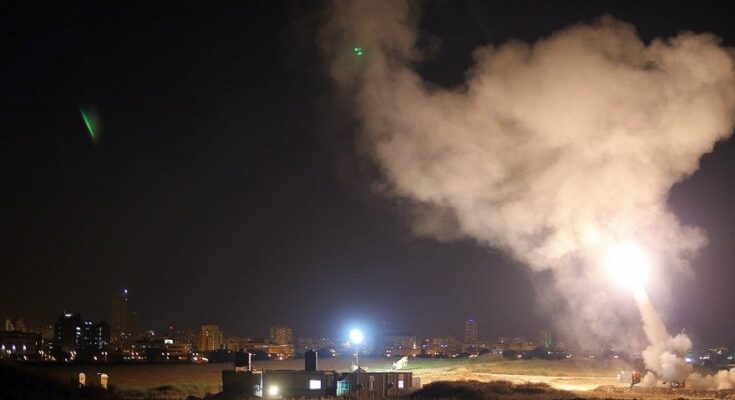A retaliatory missile barrage by Hezbollah at Israel in the early hours of Sunday to avenge a senior commander’s death was answered by Israel with major strikes on southern Lebanon.
Israel has declared a 48-hour state of emergency after more than 320 Hezbollah missiles struck the country’s northern territories.
According to Hezbollah, its drones and rockets hit 11 military targets in Israel.
The Israeli military (IDF) said it had thwarted a much larger attack by launching pre-emptive strikes after it assessed that Hezbollah was preparing to launch the barrage.
“Approximately 100 IAF fighter jets struck and eliminated thousands of Hezbollah rocket launcher barrels, aimed for immediate fire toward northern and central Israel. More than 40 Hezbollah launch areas were struck,” IDF said in a statement. “We will do whatever is needed to defend our civilians and the State of Israel.”
Hezbollah has dismissed IDF’s claim and said its operation has been successful.
It added that the barrage had completed the first phase of its response to the assassination of senior commander Fuad Shukr by Israel in Beirut last month, and that the full response would take “some time”.
One fatality was reported in Lebanon.
Israel not seeking full-scale war with Hezbollah
Sunday’s strikes were among the heaviest exchanges of fire between Israel and Hezbollah since the Israel-Hamas war began in Gaza last October.
They came as negotiators were to meet in Cairo in renewed efforts to stop the war in Gaza and reach an agreement for the return of Israeli and foreign hostages in exchange for Palestinian prisoners. The negotiation meeting would proceed unaffected by Sunday’s Israel-Hezbollah strikes, according to NBC News.
An Israel-Hezbollah escalation had been feared since a missile strike in the Israeli-occupied Golan Heights killed 12 youngsters in July and the IDF assassinated Fuad Shukr in Beirut in response.
The tension between the two could drag the Middle East into a wider regional conflict, potentially involving both the United States and Iran, as Reuters observes.
However, in the light of Sunday’s developments, Israel’s Minister of Foreign Affairs, Israel Katz, stated that, while his country will do “whatever it takes” to protect its citizens, it doesn’t seek a full-scale war.
“We are determined to do everything possible to defend our country, to return the residents of the north safely to their homes and to continue to uphold a simple rule: Whoever harms us—we harm him,” said Israeli Prime Minister Benjamin Netanyahu at the beginning of an emergency Cabinet meeting on Sunday morning.



